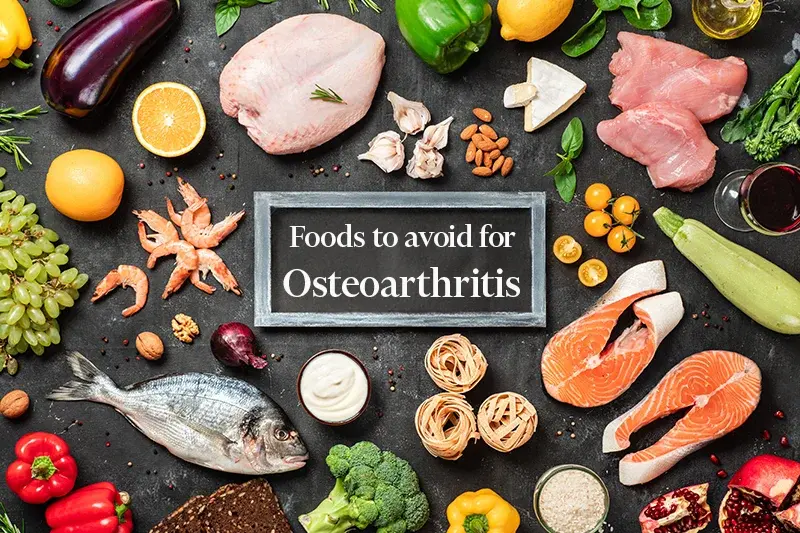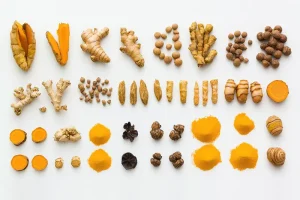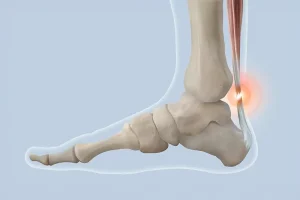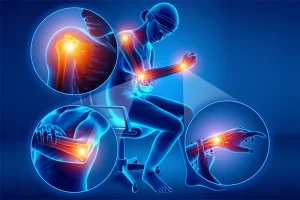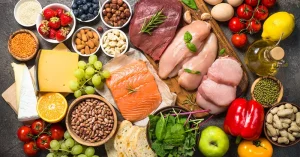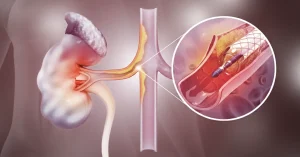What Is Osteoarthritis?
Osteoarthritis is a chronic degenerative joint disease that appears when the cartilage covering the ends of bones breaks down over time. This wear causes the bones to rub directly against each other, leading to pain, stiffness, inflammation, and limited mobility.
Osteoarthritis can affect any joint, but is most common in the knees, hips, hands, and spine. Several factors influence its development and symptoms, including age, genetics, body weight, physical activity, and diet.
Why Is Diet Important in Osteoarthritis?
Although no diet can cure osteoarthritis, your daily food choices have a direct impact on inflammation levels, joint pain, and the disease’s progression. Certain foods can exacerbate inflammation and joint damage, while others can contribute to weight gain, thereby putting extra strain on already vulnerable joints, such as the knees and hips. Excluding or limiting these foods is an essential part of a comprehensive treatment plan for people living with osteoarthritis.
At VenArt Clinic, we frequently receive questions about which foods are safe and which should be avoided. Good nutrition education helps patients make informed choices that support their recovery and overall well-being.
Foods to Avoid in Osteoarthritis
Below are the main foods and food groups that may worsen osteoarthritis symptoms if consumed frequently and in large amounts.
1. Refined Sugar
Foods and drinks that contain refined sugar can trigger an increase in the production of cytokines — proteins that promote inflammation throughout the body. Frequent sugar intake not only worsens inflammation but also contributes to weight gain, which increases joint pressure.
Examples of foods to avoid:
- Sweetened carbonated drinks and energy drinks
- Industrial pastries and cakes
- Breakfast cereals with added sugar
- Packaged sweets, candy, and chocolate bars
Impact: Excess sugar can aggravate joint discomfort, increase inflammation, and promote unhealthy weight gain, making osteoarthritis harder to manage.
2. Processed Meats and Saturated Fats
Cold cuts, sausages, fatty red meats, and smoked meats are high in saturated fats and harmful compounds that fuel inflammation. A diet rich in saturated fats can also increase the risk of cardiovascular disease, which frequently coexists with osteoarthritis.
Examples of foods to avoid:
- Salami, hot dogs, bologna, ham
- Smoked ribs, bacon, and sausages
- Fatty cuts of pork or beef
Impact: These foods can make joint inflammation worse and contribute to other health problems that complicate osteoarthritis treatment.
3. Fast Food
Fast food is often loaded with trans fats, hidden sugars, high salt content, and artificial additives that promote chronic inflammation.
Examples of foods to avoid:
- French fries and fried chicken
- Burgers with industrial sauces
- Packaged salty snacks like nachos and crisps
Impact: Fast food not only increases inflammation but also contributes to metabolic imbalances and obesity, placing extra strain on affected joints.
4. Full-Fat Dairy Products (In Some Cases)
While dairy can be part of a healthy diet for many, some people with osteoarthritis may find that the casein protein in full-fat dairy products triggers or worsens inflammation. These products are also naturally high in saturated fats.
Examples of foods to avoid if you notice worsening symptoms:
- Whole milk
- Full-fat cheese, cream cheese, heavy cream
- Butter
Alternatives: Choose low-fat or fat-free dairy products or switch to unsweetened plant-based alternatives like almond, oat, or soy milk and plant-based yogurts.
5. Foods High in Salt
Excessive sodium can lead to water retention, which may cause swelling and increased pressure in the joints, worsening discomfort.
Examples of foods to avoid:
- Packaged chips and crackers
- Pre-prepared frozen meals and convenience foods
- Canned foods with added salt
- Salty sauces such as commercial soy sauce
Impact: A high-salt diet can aggravate joint pain and negatively affect blood pressure and heart health.
6. Excessive Alcohol Consumption
Drinking too much alcohol can trigger inflammation throughout the body and interfere with medications used to manage osteoarthritis. Alcohol abuse may also damage the liver, which plays a role in metabolizing many prescribed drugs.
Examples of what to avoid:
- Large quantities of beer
- Hard liquors like whiskey, vodka, rum
- Cocktails high in added sugar and syrups
Impact: Too much alcohol can make inflammation worse and reduce your body’s ability to recover from flare-ups.
Additional Recommendations
- Maintain a healthy body weight. Every extra kilogram places additional pressure on weight-bearing joints such as the knees and hips.
- Choose meals rich in healthy fats (like Omega-3), complex carbohydrates, and fiber rather than simple sugars and unhealthy fats.
- Observe how your body reacts to certain foods by keeping a detailed food diary. This can help identify foods that trigger flare-ups so you can avoid them in the future.
Next Steps You Should Take
Removing foods that promote inflammation is an important step in managing osteoarthritis and protecting your joint health. Combined with medical treatment, an anti-inflammatory diet can help reduce pain, support mobility, and improve your quality of life. If you want to learn how to adapt your diet, our VenArt Clinic specialists are here to guide you with personalized nutrition plans and advice tailored to your needs. Talk to us today.
Sample Menu for Osteoarthritis
Below is a simple example of a daily menu designed to help manage osteoarthritis through balanced, anti-inflammatory foods.
Breakfast
- Whole oats cooked with unsweetened almond or soy milk
- One teaspoon each of flax seeds and chia seeds
- Fresh fruits such as blueberries, apple slices, or banana
- Green tea or a ginger infusion
Benefits: Oats are high in fiber, seeds provide Omega-3 fatty acids, and the fruit and tea offer antioxidants that help reduce inflammation.
Snack
- A handful of raw, unsalted walnuts or almonds
- One fresh apple or pear
Benefits: These snacks supply healthy fats and antioxidants that protect joint health.
Lunch
- Cream of lentil or green pea soup (without added cream)
- Baked salmon seasoned with lemon and herbs
- Fresh raw salad with spinach, grated carrot, and red cabbage dressed with extra virgin olive oil
- 1–2 slices of whole-grain bread
Benefits: Salmon is rich in Omega-3, and raw vegetables deliver vitamins and fiber that help fight inflammation.
Afternoon Snack
- Plant-based yogurt (soy or coconut, unsweetened)
- A small portion of dried fruit, such as apricots or prunes
Benefits: Fermented foods and dried fruit add fiber and gentle sweetness without added sugar.
Dinner
- Quinoa or brown rice with a mix of steamed vegetables like broccoli, zucchini, and bell peppers
- Hummus made with chickpeas, tahini, lemon juice, and olive oil
- One slice of whole-grain bread
Benefits: This meal provides plant-based protein, fiber, and healthy fats to support joint health.
Before Bed (Optional)
- Chamomile or turmeric tea with ginger
Benefits: Helps relax the body, supports digestion, and may reduce nighttime inflammation.
Frequently asked questions
Can I eat meat if I have osteoarthritis?
Lean meats such as chicken or turkey are generally fine in moderation. Limit processed and fatty meats that can increase inflammation.
Are all dairy products prohibited?
No, but if you notice worsening symptoms after consuming full-fat dairy, try switching to low-fat or plant-based alternatives.
Do I need to follow a strict anti-inflammatory diet all the time?
Not necessarily strict, but consistency matters. Eating mostly anti-inflammatory foods can help you manage pain and protect your joints over the long term.

